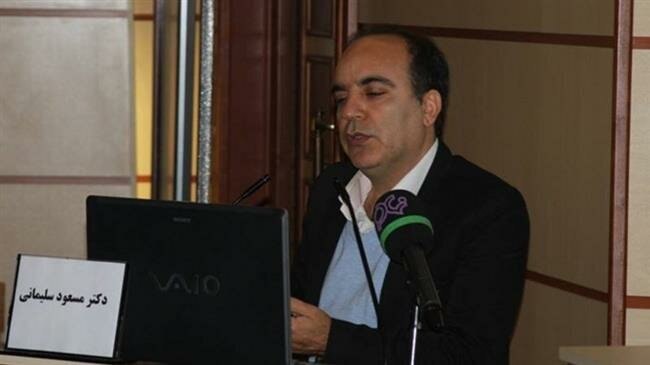U.S. holds Iranian scientist over transporting medical materials

TEHRAN - An Iranian scientist will go on trial in the United States after he was charged with violating trade sanctions by trying to transport to Iran medical material he uses in his research.
Professor Masoud Soleimani was arrested upon his arrival to the state of Chicago in October last year on charges that he had violated trade sanctions against Iran. He has been held in detention south of Atlanta since then.
The scientist was planning to complete the final stage of his research on treating stroke patients as a visiting scholar at the prestigious Mayo Clinic in Minnesota.
Soleimani and two of his students, who are free on bond, are accused of conspiring and trying to export biological materials from the U.S. to Iran without a license from the Treasury Department's Office of Foreign Assets Control.
Soleimani’s attorneys say he seized on the plans of a former student to travel from the U.S. to Iran in September 2016 as a chance to get recombinant proteins used in his research at a lower price than what he'd pay at home.
Lawyers for the scientists say the trio did nothing wrong, stressing that no specific license was required as the proteins are medical materials and that transporting them to Iran for noncommercial purposes doesn't amount to exporting goods.
The indictment said that Soleimani had communicated with Mahboobe Ghaedi, a permanent U.S. resident from Iran who has worked in stem cell research and regenerative medicine at several universities in the U.S., about getting some recombinant proteins.
According to court filings, Ghaedi bought the proteins from U.S. firms and gave them to Maryam Jazayeri, an Iranian-born U.S. citizen who agreed to bring them to Soleimani when she traveled to Iran.
Jazayeri was stopped at the Atlanta airport in September 2016, and the vials of recombinant proteins were seized by the custom officials back then.
Soleimani’s lawyer Leonard Franco said in a court filing that the recombinant proteins are used to help speed up stem cell research.
The prosecutors allege the violations of sanctions that bar trading with Iran, saying an exception for medicine and medical devices depends on the way those items are defined under federal law, prosecutors say.
"Notably, items for medical research, including the proteins at issue, are not listed in the definition," they wrote.
Defense attorneys noted that the sanctions are vague, adding that the shifting relationship between the countries causes confusion.
Even though the material was seized from Jazayeri at the tail end of the Obama administration, which saw a thaw between the two states, the secret indictment against Soleimani was issued a month after President Donald Trump withdrew the U.S. in May 2018 from a multilateral nuclear accord with Iran and reimposed unilateral sanctions on the Islamic Republic.
(Source:PressTV)
Leave a Comment